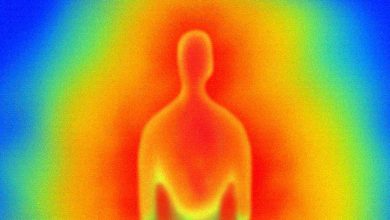The Impact of Interbreeding Between Humans and Neanderthals on Our Contemporary Health

The interbreeding between modern humans and Neanderthals that occurred thousands of years ago still influences our health in subtle but significant ways today. Through genetic studies, scientists have discovered that non-African modern humans carry traces of Neanderthal DNA, which is a result of interbreeding between the two species when they coexisted in Europe and Asia.
This interbreeding has had both positive and negative effects on our health. On the positive side, the interbred genes from Neanderthals have provided modern humans with adaptations that allowed them to survive in new environments. For instance, Neanderthals had lived in Europe for hundreds of thousands of years before our ancestors arrived, which exposed them to harsh climates. When our ancestors interbred with them, they acquired genetic variations related to adapting to cold weather, such as thicker hair and skin, as well as an enhanced immune response to certain diseases.
However, interbreeding with Neanderthals also introduced certain genetic variants that have been detrimental to our health. Research has revealed that Neanderthal genes are associated with an increased risk of several common health conditions. For example, interbred individuals have a higher risk of developing autoimmune diseases like Crohn’s disease, lupus, and type 2 diabetes. Neanderthal DNA has also been linked to an increased susceptibility to allergies, certain psychiatric disorders, and even the severity of COVID-19 symptoms.
Understanding the impact of Neanderthal DNA on our health today relies heavily on studying the genetic variations inherited from our ancient relatives. Scientists have been able to identify specific regions in the human genome where Neanderthal DNA is more prevalent, enabling them to analyze the potential effects of these genetic variants on our health.
Moreover, the study of Neanderthal DNA has offered important insights into human evolutionary history and has fueled ongoing scientific debates. Discovering that our ancestors interbred with a different species challenges traditional views of human evolution as a linear process. It highlights the complexity of our human lineage and our interconnectedness with other species.
As genetic research continues to advance, scientists will undoubtedly uncover more information about the impact of interbreeding between humans and Neanderthals on our health. The knowledge gained from these studies will not only deepen our understanding of our evolutionary past but also provide valuable insights into the genetic factors that contribute to modern human health conditions. It may even pave the way for new approaches to preventing and treating diseases associated with our ancient lineage.
In conclusion, the interbreeding between modern humans and Neanderthals has left an indelible mark on our genetic makeup, influencing our health in both positive and negative ways. While it has provided us with adaptations essential for survival, it has also introduced genetic variants that predispose us to certain health conditions. By studying and understanding these ancient genetic influences, scientists are paving the way for breakthroughs in health research and shedding light on our fascinating evolutionary journey.



